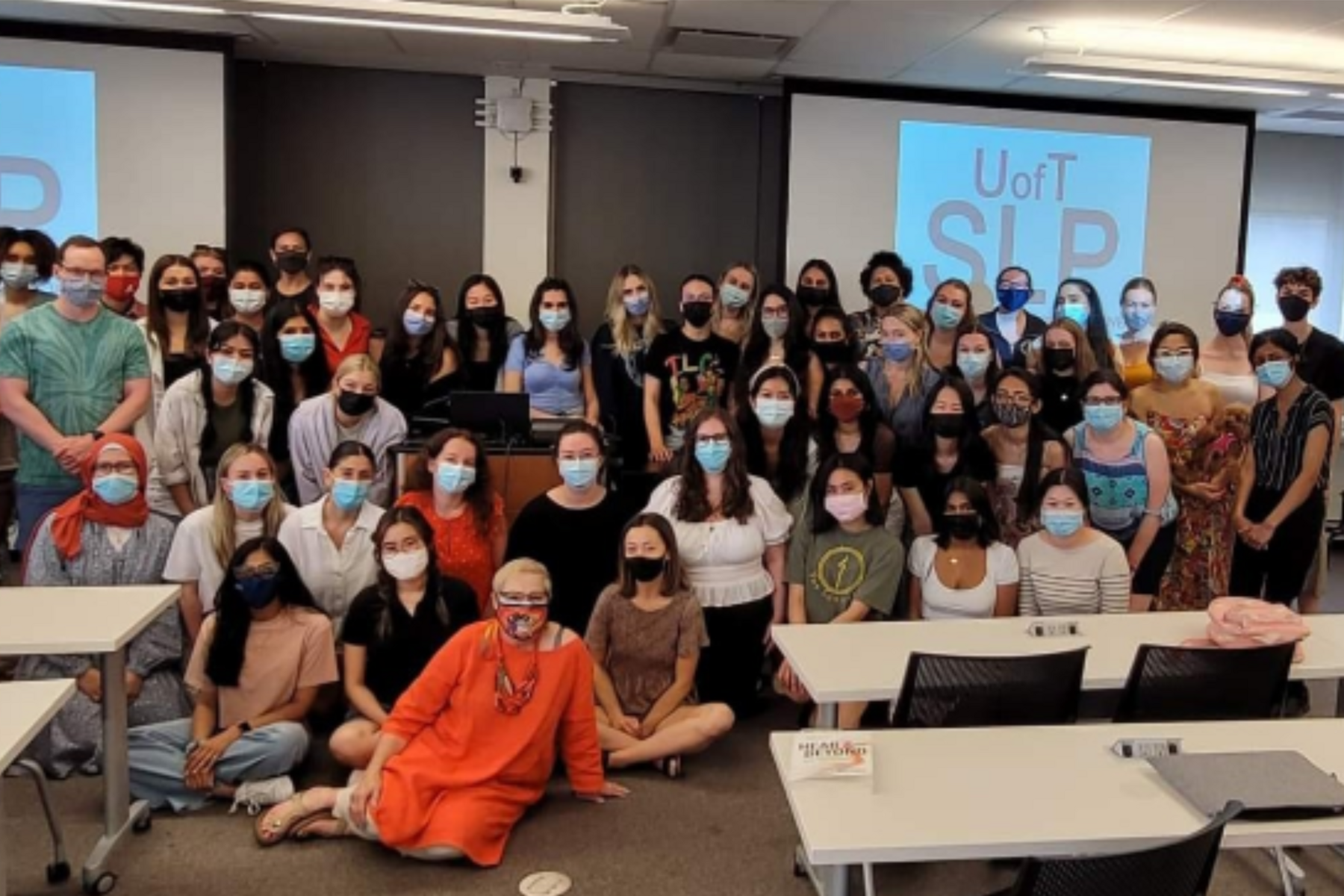
Main Second Level Navigation
Breadcrumbs
- Home
- Future Students
- Graduate Education
- Explore our Graduate Programs
- Rehabilitation Sciences
- Speech-Language Pathology
Speech-Language Pathology
MHSc
Our Program
The Master of Health Science in Speech-Language Pathology (MHSc) is a 22-month full-time professional graduate program. It is designed for students who have completed a four-year undergraduate degree and prepares students for entry into the practice of speech-language pathology. Graduates assume varied professional responsibilities related to the assessment and therapy of speech, voice, language, cognitive communication and swallowing disorders.
The MHSc program offers a widely acclaimed integrated curriculum that is unique in Canada. The curriculum comprises five academic and four clinical units. The themed academic units are directly followed by full-time clinical placements in the same areas of practice, which allows students to maximize their clinical learning. The integrated curriculum places equal emphasis on theoretical and practical competencies regarding the assessment and treatment of disorders of human communication and swallowing.
Throughout the two-year program, students develop a firm grasp of cutting-edge evidence-based and inter-professional clinical practice through lectures, problem-based learning activities, an individual mentorship system, and self-directed projects. Students participate in the Interprofessional Education curriculum offered by the Centre for Interprofessional Education at the University of Toronto.
Over the course of the program, students also engage in a clinical research exercise that culminates in a capstone presentation at the conclusion of the academic part of the MHSc program. This gives students an opportunity to showcase their learning success and clinical reasoning skills.

Courses

Units 1-5
- Unit 1 covers anatomy, speech science, audiology, child language and clinical practice issues;
- Unit 2 covers developmental disorders, including child language disorders, articulation and phonological disorders, and fluency disorders;
- Unit 3 is an internship related to the developmental disorders covered in Unit 2;
- Unit 4 addresses augmentative and alternative communication, voice disorders, and aural rehabilitation;
- Unit 5 is an internship in speech, language and/ or hearing disorders in a disorder area covered in Units 2 or 4.

Units 6-9
- Unit 6 addresses neurogenic and structurally related speech, language, cognitive communication and swallowing disorders;
- Unit 7 is an internship in an area of neurogenic or structurally-related disorders covered in Unit 6;
- Unit 8 covers clinical practice, research, and clinical analysis of communication disorders and swallowing. The clinical research exercise ends in a capstone presentation in this unit.
- Unit 9 is a final advanced internship in any area of communication or swallowing disorders. During this internship, students have an opportunity to assume more clinical responsibilities and prepare for their entry into clinical practice.
By the Numbers
Department of Speech-Language Pathology
*Full course equivalent. A typical 0.5 FCE is over one term (13 weeks), meeting 1-2 times per week. A typical 1.0 FCE is over two terms (26 weeks), meeting 1-2 times per week.